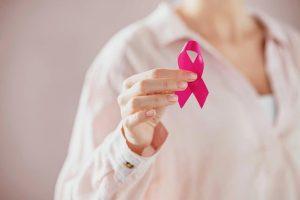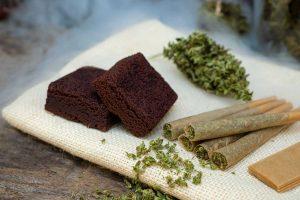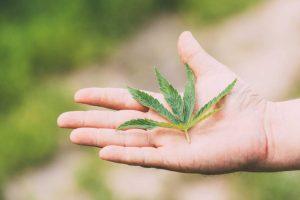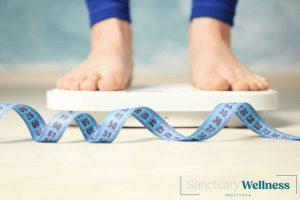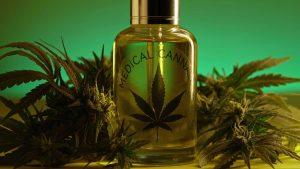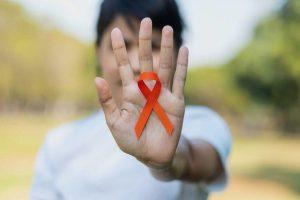- Nicholas DiBella
- Published: February 9, 2023
- Updated: May 2, 2025
- Fact-checked by Dr. Desiree Granados
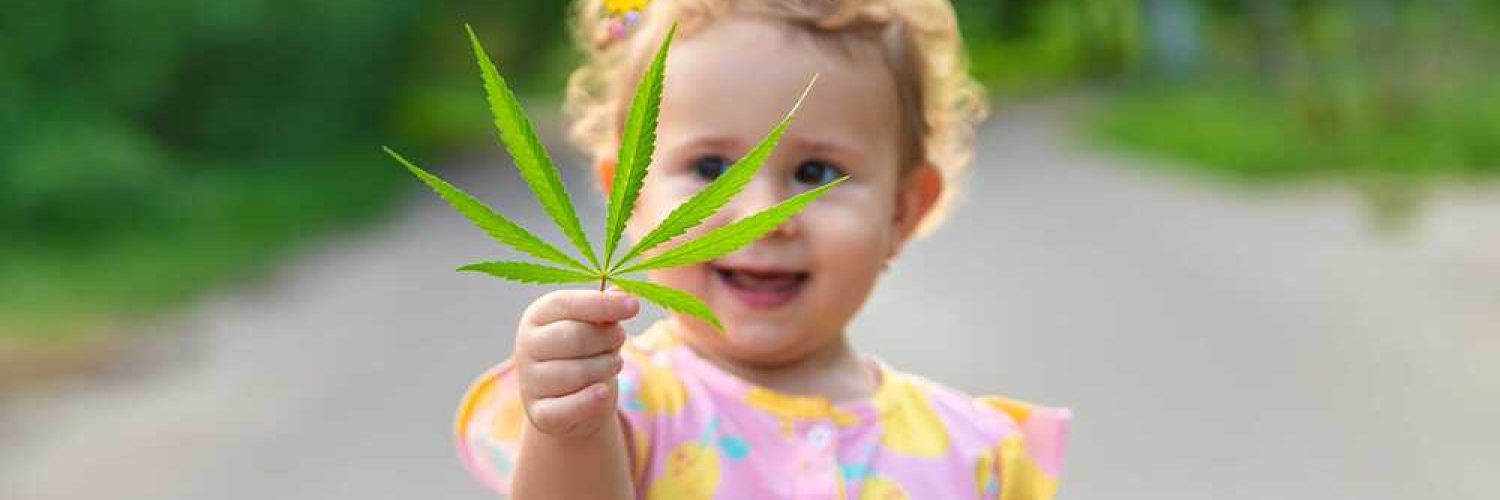
Cannabidiol, or CBD, is one of the active compounds (cannabinoids) that can be extracted from cannabis plants like hemp and marijuana. It’s commercially available in different forms, such as chewable gummies, transdermal patches, oils, and capsules.
Clinical trials have established CBD as a well-known treatment for multiple health problems, including disorders that occur in children. These include epilepsy (e.g., Dravet syndrome), anxiety, and autism.
But can CBD get you high? There are two prominent cannabinoids in cannabis plants: CBD and tetrahydrocannabinol (THC). CBD isn’t psychoactive, meaning it can’t get you high, but THC does. That’s why CBD is medically approved for children.
However, some CBD products may contain THC, especially if the CBD is derived from marijuana plants. To help kids avoid THC and its psychoactive effects, choose CBD isolate (THC-free) over full-spectrum CBD.
If you think CBD might be suitable for your kids, you’re in the right place. This post discusses what parents need to know about CBD for kids. Read on to learn more.
CBD Dosing Guidelines for Kids
How much CBD should your kids take? The correct CBD dose for kids typically depends on the child’s weight and strength of the product. Below are the general guidelines doctors often use when prescribing CBD to children:
- For kids weighing 30 lbs, the starting dose is 1-2.5 mg; the high dose is 7.5 mg.
- For kids weighing 40 lbs, the starting dose is 2.5-3.5 mg; the high dose is 10 mg.
- For kids weighing 50 lbs, the starting dose is 2.5-5 mg; the high dose is 15 mg.
- For kids weighing 75 lbs, the starting dose is 5-7.5 mg; the high dose is 20 mg.
- For kids weighing 100 lbs, the starting dose is 5-10 mg; the high dose is 30 mg.
- For kids weighing 125 lbs and above, the starting dose is 5-10 mg; the high dose is 30-40 mg.
Note: Never use these guidelines as a treatment recommendation. Ask your doctor about the correct CBD dose for your kids. Medications made from CBD can’t be purchased over the counter and require a prescription from a licensed medical marijuana doctor.
Furthermore, consulting with a doctor can help you choose a safe, THC-free CBD product from a reputable manufacturer that provides accurate information about its dosage, strength, and purity.
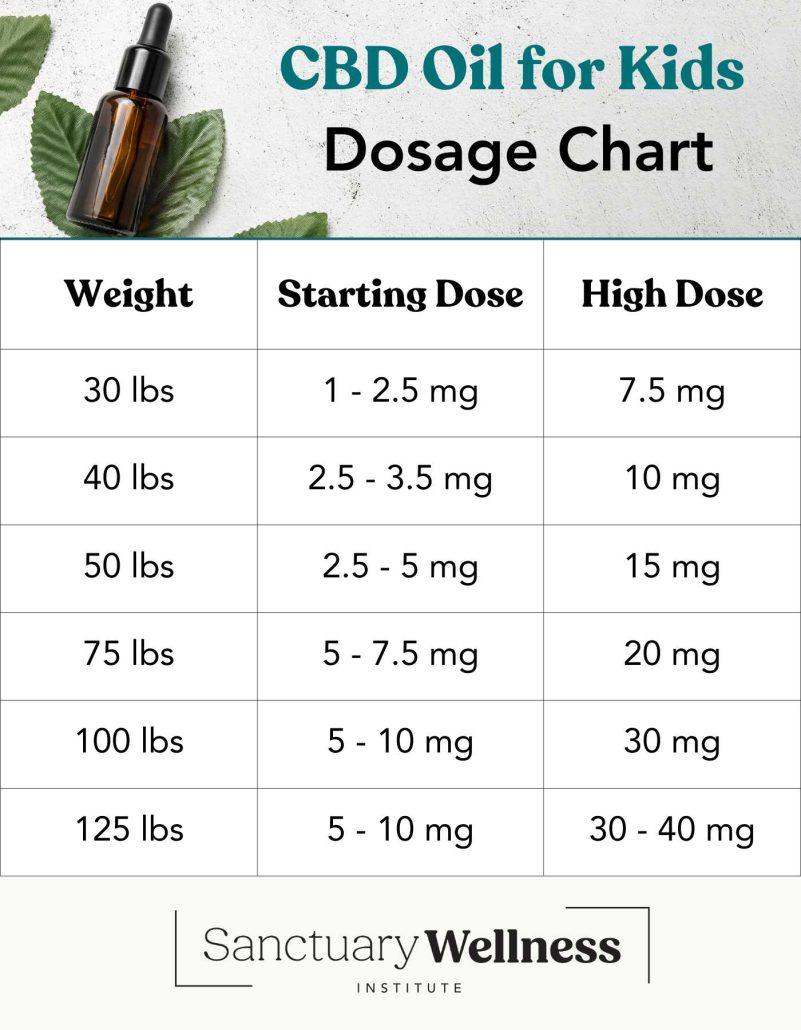
Types of CBD
As mentioned earlier, CBD is available in many forms. This can make it difficult to determine and control the amount of CBD given to a child. Some of the various forms of child CBD products include tinctures, oils, topicals/lotions, edibles, dietary supplements, and vaping items.
The most common forms of CBD for children are as follows:
CBD Oil
CBD oil comes in a wide range of potencies. It’s often administered under the tongue, but you can also buy capsules. Note that CBD oil has an earthy, unpleasant aftertaste that kids may not like. If your child dislikes the taste of regular CBD oil, you can try flavored CBD oil like berry or citrus.
CBD-Infused Gummies
CBD gummies are more appealing to kids than CBD oil. That’s because they taste and smell like sweet candy. This helps mask the natural, unpleasant taste and aftertaste of CBD.
Since CBD gummies taste like candy, make sure to store them in areas kids can’t reach to prevent overdose and unsupervised use.
Transdermal CBD Patches
Transdermal CBD patches are recommended for kids who dislike the unpleasant taste of CBD oil. They’re also ideal for sugar-sensitive kids. CBD patches administer a consistent CBD level over time, unlike other CBD oil and gummies.
Side Effects Of CBD for Kids
Although most people tolerate CBD well, it carries the risk of side effects just like any other medication. The most common side effects include:
- Dry mouth
- Diarrhea
- Reduced appetite
- Drowsiness / Fatigue
Call your pediatrician immediately to adjust the dosage or replace the medication if any of these side effects persist for three or more days.
Keep in mind that CBD can interact with other medications, especially blood thinners, so it’s important to consult your child’s healthcare provider if they are taking any medications.
What Conditions Can CBD Treat?
CBD can help alleviate several conditions common to children, such as epilepsy, anxiety, and autism. However, the Food and Drug Administration (FDA) has only approved CBD for treating epilepsy (Dravet syndrome).
Epilepsy
Children with epilepsy can take CBD to control seizures and relieve other symptoms. CBD can also help treat kids suffering from Dravet and Lennox-Gastaut syndrome, which are two rare epilepsy conditions. In 2018, Epidiolex (an oral CBD drug) was approved by the FDA to treat seizures.
Other CBD products may provide similar relief to Epidiolex, but we recommend consulting a medical marijuana doctor before giving any CBD product to your child. It’s important to ensure the product is safe, free of THC, and comes from a trusted manufacturer that accurately reports dosage, strength, and purity.
Autism
A 2018 study found that medical CBD was able to improve the symptoms of autism spectrum disorder in children aged 5-18 years old after one month. These include rage attacks, restlessness, and seizures. For most participants, autism symptoms continued to be alleviated for six months. However, the experts suggested that their study must be dealt with caution because there was no control group when it was conducted.
Similarly, research suggests that medical marijuana may be a promising treatment for autism in both children and adults. However, even in states where medical marijuana is legal, individuals must be at least 18 years old to purchase cannabis products, or they must be under the supervision of a registered medical marijuana caregiver.
Anxiety
Several studies from 2019-2020 indicate that CBD may help treat a range of anxiety disorders. These include post-traumatic stress disorder (PTSD), obsessive-compulsive disorder (OCD), and social anxiety disorder. Another study in 2016 stated that the use of CBD improved the anxiety symptoms and insomnia of a 10-year-old child with PTSD.
Medical cannabis has been shown to be an effective treatment for anxiety and is a qualifying condition for a medical cannabis card in many states. While only adults can legally purchase products containing THC in states where it is legal to do so, a medical marijuana doctor may approve its use for a minor under the care of a registered caregiver.
Is CBD Legal for Children?
CBD products that are completely free of THC are legal in every state. However, in states where recreational marijuana is not legal, you’ll likely need a medical marijuana card to purchase any CBD product that contains even trace amounts of THC.
While THC is generally not recommended for adolescents, a medical marijuana doctor may approve cannabis use for a minor in specific cases, provided it’s under the supervision of a registered caregiver. Parents and older siblings 18 years or older may apply to be a medical marijuana caregiver.
Conclusion
CBD is well-known for its ability to alleviate a range of medical conditions, including some that affect children. While the FDA has approved medication containing CBD for treating seizures, more research is needed to determine how safe and effective CBD is for treating other conditions. However, the latest research and anecdotal evidence suggests that it is beneficial for treating conditions like autism and anxiety.
If you’re a parent or caregiver and want to give CBD to a child, be sure to consult a pediatric professional first to determine the right dose and type of CBD to administer. Though the benefits of CBD are well-known, it’s important to consult a healthcare provider so as to also consider the substance’s long-term effects and whether it’s the best treatment option for your child.
How we reviewed this article:
- Jessica Bass. “A Case of Toxicity from Cannabidiol Gummy Ingestion.” Cureus. April 2020.
https://pmc.ncbi.nlm.nih.gov/articles/PMC7233499/ - MayoClinic. “What are the benefits of CBD — and is it safe to use?” Dec. 2022.
https://www.mayoclinic.org/healthy-lifestyle/consumer-health/expert-answers/is-cbd-safe-and-effective/faq-20446700 - FDA Approves First Drug Comprised of an Active Ingredient Derived from Marijuana to Treat Rare, Severe Forms of Epilepsy. FDA.Gov. June 2018.
https://www.fda.gov/news-events/press-announcements/fda-approves-first-drug-comprised-active-ingredient-derived-marijuana-treat-rare-severe-forms - Lihi Bar-Lev Schleider, et al. “Real life Experience of Medical Cannabis Treatment in Autism.” Sci Rep. Jan 2019.
https://pmc.ncbi.nlm.nih.gov/articles/PMC6336869/ - Kevin Han, et al. “Therapeutic potential of cannabidiol (CBD) in anxiety disorders.” Psychiatry Research. Sep 2024.
https://www.sciencedirect.com/science/article/pii/S0165178124003342 - Scott Shannon. “Effectiveness of Cannabidiol Oil for Pediatric Anxiety and Insomnia.” The Permanente Journal. Oct. 2016.
https://pmc.ncbi.nlm.nih.gov/articles/PMC5101100/
Current Version
May 02, 2025
Written By
Nicholas DiBella
First Published
February 9, 2023
Written By
Jake Peter
Fact-checked By
Dr. Desiree Granados
Editorial Process
Our Editorial Process
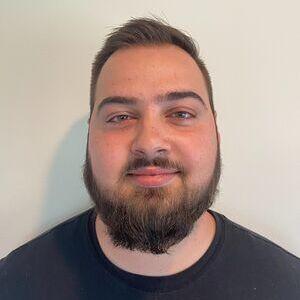
Nicholas DiBella received his psychology degree from West Chester University of Pennsylvania and has been writing content for the Sanctuary Wellness Institute since 2023. He is passionate about all things health & wellness.

